Cawdery killings: PSNI apologises 'unreservedly' to family
- Published
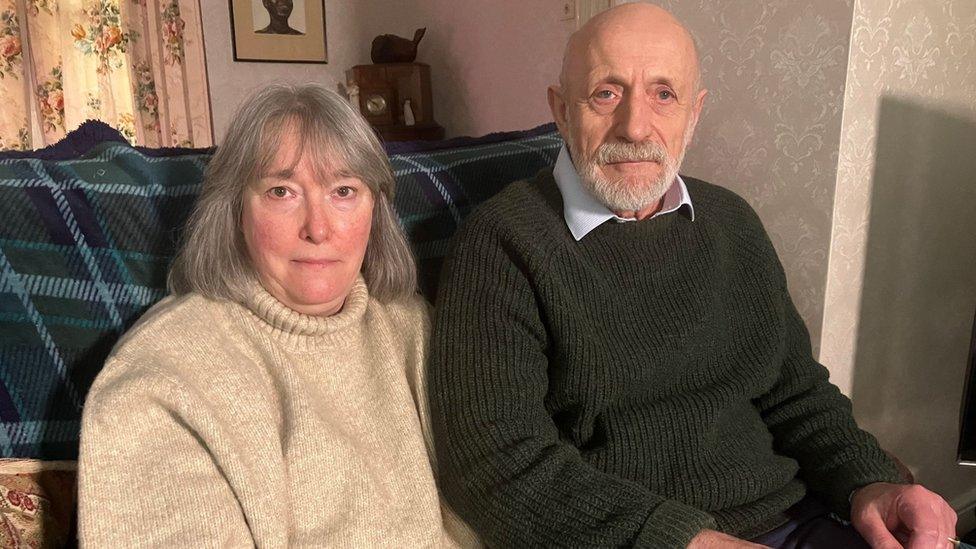
Wendy and Charles Little, the couple's daughter and son-in-law, have welcomed the PSNI apology
The Police Service of Northern Ireland (PSNI) has apologised "unreservedly" to the family of an elderly couple killed by a man with serious mental illness.
Michael and Marjorie Cawdery were attacked in Portadown, County Armagh, by Thomas McEntee in May 2017.
In the days before, McEntee had come to the attention of police and health services but chances were missed to take him to a place of safety.
The Cawdery family welcomed the apology, but are seeking a law change.
The couple's son-in-law Charles Little told BBC News NI's Good Morning Ulster programme that Chief Constable Jon Boutcher was "very, very apologetic".
"He fully accepted there had been failing and we should have had an apology earlier."
In a statement, Mr Boutcher said: "I want to reiterate my sincere apologies to the Cawdery family on behalf of the PSNI for all failings which have been highlighted in our handling of this tragic case.
"It is imperative that we learn the lessons and do everything we can to prevent such a tragedy from happening again."
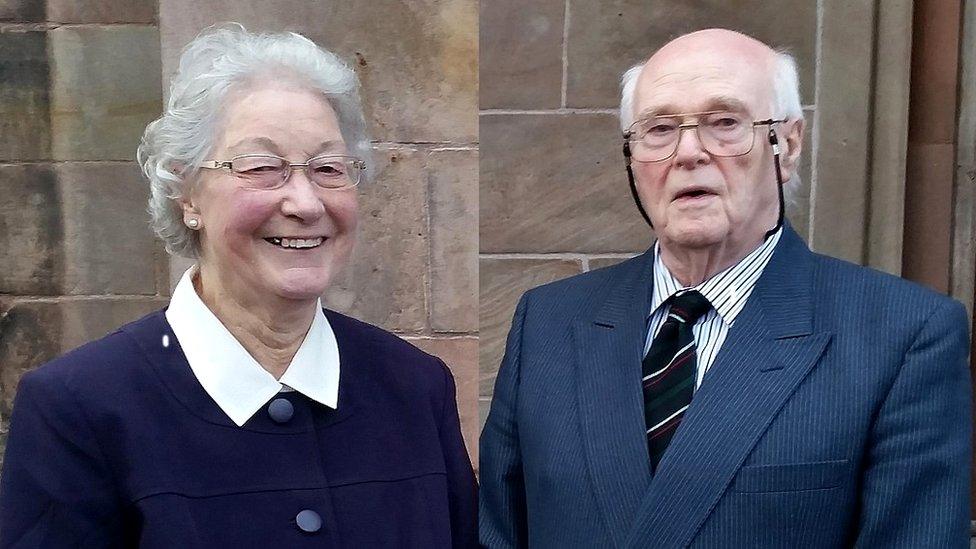
Marjorie and Michael Cawdery were killed in their home in Portadown in 2017
It comes after findings from an inquest into the deaths were released in December.
Coroner Maria Dougan said the killings must serve as "a catalyst for change" in how organisations such as health trusts and the police deal with mental health patients.
Mr Boutcher said that following the "stark findings" of the inquest, the PSNI carried out its own internal review and a serious adverse incident review was also conducted by the health trust.
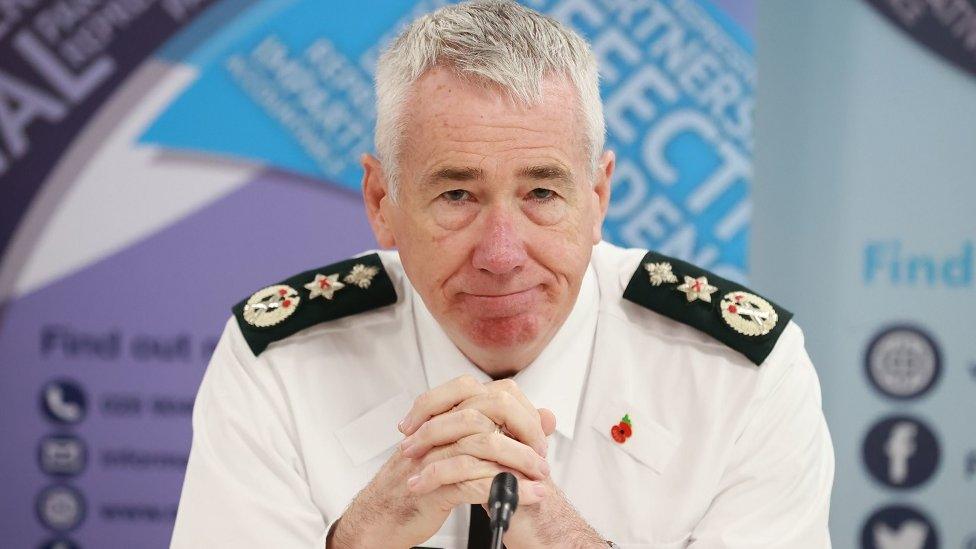
Chief Constable Jon Boutcher has apologised to the family of Marjorie and Michael Cawdery on behalf of the PSNI
A 'Gold Co-ordinating Group' has now been established "to develop an action plan to address identified shortcomings" and develop "engagement with the Department of Health (DoH) and other partners", the chief constable added.
"I am keen to reassure the family about our commitment to this work," Mr Boutcher said, adding that he recognises they "have had to live with the lasting impact of this horrendous attack and the loss of Michael and Marjorie".
'Sincere condolences'
In a statement, the Southern Trust repeated its apology to the Cawdery family adding that it was "reviewing in detail the coroner's written recommendations and will work in partnership with others across the Health and Social Care system and with the PSNI".
The Belfast Trust offered its "sincere condolences to the Cawdery family".
It added: "We are sorry for the failings identified by the coroner with respect to care provided by Belfast Trust.
"We are committed to learning from the coroner's findings and to working collaboratively with other Trusts and agencies to improve the delivery of mental health services."

What role did the PSNI and health trusts play?
At the beginning of the inquest, counsel outlined how McEntee had contacted the police and had sought treatment at hospitals in Belfast, Newry and Craigavon over a five-day period before the killings.
22 May: McEntee called police about being "chased" by members of a cult. An officer contacted his sister in Londonderry who agreed to come to Belfast to collect him. He left the station against police advice and went toward the Europa bus station. He was later taken to the Mater Hospital for assessment.
25 May: Police were called about McEntee's behaviour in Warrenpoint as he was intoxicated. He was given a lift to Newry train station by police after agreeing to travel to Lurgan, but did not board a train.
26 May: On the morning of the killings, McEntee walked naked from Bessbrook to Daisy Hill Hospital in Newry. He was detained but not arrested before being transferred by ambulance to Craigavon Area Hospital in Portadown. While he was there, he got up, left and made his way to the Cawderys' home in nearby Upper Ramone Park.

'Protect the public'
Mr Little, who is married to the couple's daughter Wendy, said the Department of Health (DoH) and the PSNI must work closely together "to integrate their mental health operations to save life, protect the public and minimise the resources required to do the job efficiently".
"They must seize this opportunity to work together, be innovative, think outside the box and set the 'gold standard' for the UK and Ireland."
He said the DoH will include the PSNI in its new serious adverse incident process redesign development group, "appointing a PSNI member to the collaborative board that will establish and oversee the new regional mental health service".
"Over the fatal week of the Cawdery homicides two health trusts, three hospitals, and approximately 25 PSNI officers were involved.
"It is essential that such incidents are prevented as neither agency has the resources to deal with mistakes of that magnitude," he said.
In a statement, the DoH reiterated its apology to the Cawdery family and said it acknowledges the coroner's report.
"Its findings will be reviewed and considered in detail and the Department will work closely with all relevant statutory partners, including the PSNI," it continued.
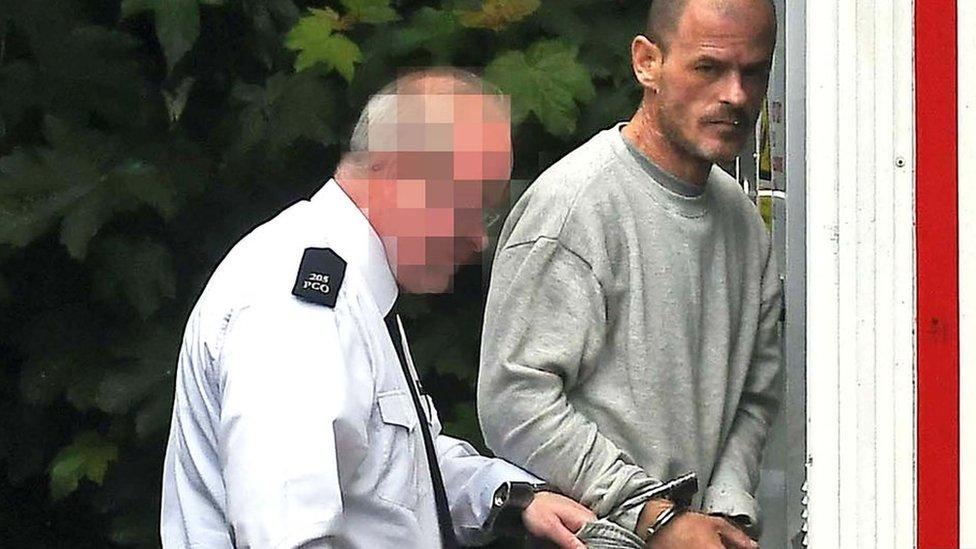
Thomas Scott McEntee was jailed for the killings
Presenting her inquest findings, Ms Dougan criticised police failures to enact mental health legislation on two occasions that would have seen McEntee taken to a place of safety.
She also said there was a failure by the health services to fully evaluate McEntee and seek all available information.
McEntee was convicted of two counts of manslaughter by diminished responsibility but the family have continued battling for answers and change.
Related topics
- Published13 December 2023
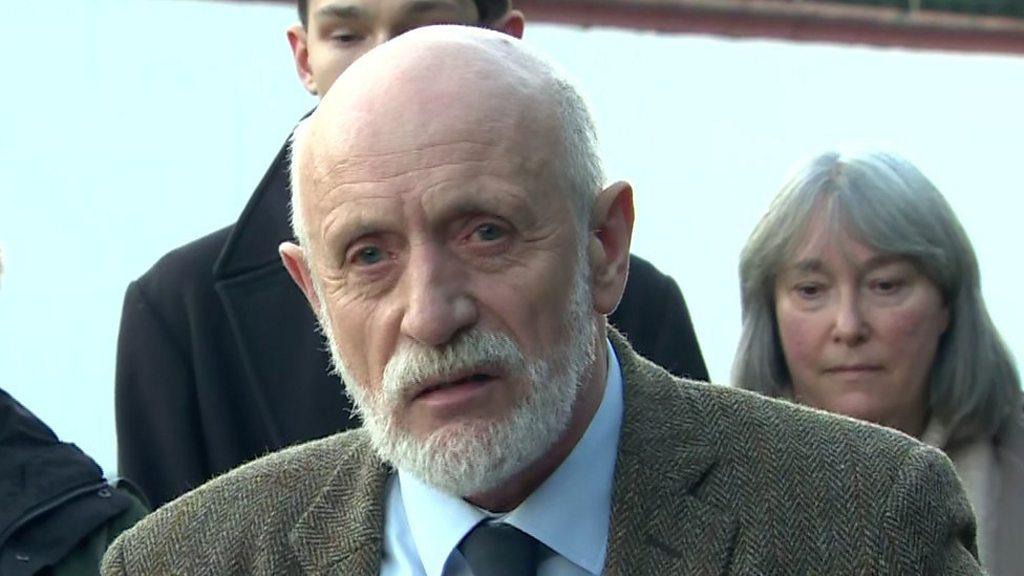
- Published28 June 2018

- Published15 December 2023
